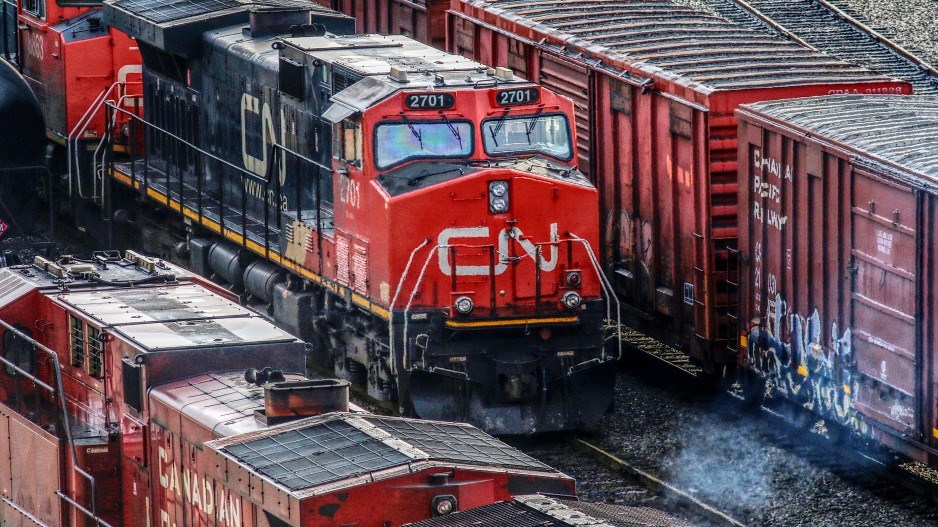British Columbia stands at a pivotal moment. Our province, with its abundant natural resources and unparalleled access to the thriving markets of Asia and Oceania, is uniquely positioned to be the engine of Canada's economic diversification. However, realizing this potential and funding the critical services British Columbians rely on–health care, education, social services and addictions treatment–hinges on a renewed commitment to infrastructure development.
It was a historical moment to see the first LNG cargo depart Kitimat earlier this summer, the culmination of industry, governments and Indigenous communities coming together, but this example of collaboration and trade diversification is far from enough.
The recent Scotiabank report, Eager Beavers: What Trade-Enabling Infrastructure Does Canada Need to Diversify Its International Clientele?, underscores this urgent need. It highlights that while Canada aims to diversify its trade flows away from a concentrated reliance on the U.S., our current trade infrastructure is not adequately equipped for this shift.
Scotiabank estimated more than 70 per cent of Canadian goods are currently shipped by road, rail or pipeline, making our trade networks deeply integrated with our southern neighbour. Redirecting even a 10 per cent share of trade away from the U.S. would necessitate significant increases in goods leaving the country by ports and airports. This means investing in marine and air infrastructure, and strengthening our east-west rail, road and intermodal capacity.
The report's findings are clear: if Canada is to diversify its trade, a rebalanced portfolio of infrastructure spending is needed, along with increased overall investment. The federal government’s 2022 National Supply Chain Task Force estimated that road and rail could account for more than 80 per cent of infrastructure capital expenditure in the coming decades. Yet exports to overseas markets predominantly rely on marine (60 per cent) and air (35 per cent) transport, according to Scotiabank. This disconnect between current investment priorities and the needs of trade diversification is a significant hurdle.
British Columbia's natural resources, including critical minerals, are in high global demand, offering a prime opportunity to diversify our exports. The federal government's recent announcement of Bill C-5, aimed at streamlining project approvals, is a welcome step towards accelerating the development needed to get these resources to market. By leveraging our resource wealth, we can generate the revenue necessary to invest in the vital social programs that improve the lives of British Columbians. Furthermore, strategic infrastructure investments, particularly in marine and air capacities, can directly contribute to Canada's ability to meet its NATO target of five per cent GDP on defence spending by 2035, as robust supply chains and export capabilities are integral to national security and economic strength.
The provincial government has a critical role to play in this national ambition. Rather than risking being left behind, British Columbia must work in close collaboration with the federal government. This is not about competition but about synergy. We need a united front to address the challenges outlined in the Scotiabank report, such as the estimated $15-$21.5 billion investment required for marine ports in the next 15 years, and the significant increase in annual capital outlays needed for the rail sector.
A key challenge, as highlighted by the Greater Vancouver Board of Trade, is the critical shortage of industrial land in the Lower Mainland. Without sufficient space for logistics, warehousing, and processing, our ability to expand port and rail operations, and thus our export capacity, will be severely constrained. Addressing this, alongside investments in physical infrastructure like modernized ports and expanded rail lines, is paramount.
British Columbia's advantage lies not just in our resources, but in our strategic position as Canada's gateway to the Pacific. By investing wisely in our infrastructure, fostering collaboration between all levels of government and Indigenous communities while prioritizing the efficient movement of goods, we can unlock our full economic potential. This will not only make our country more successful on the global stage but will also directly fund the health care, education, social services, and addictions treatment that our communities so desperately need and deserve. The time to build our future is now.
Susannah Pierce has played a critical role advancing major infrastructure projects in the U.S. and Canada over the last 20 years of her career. She most recently served as president and country chair of Shell Canada.



